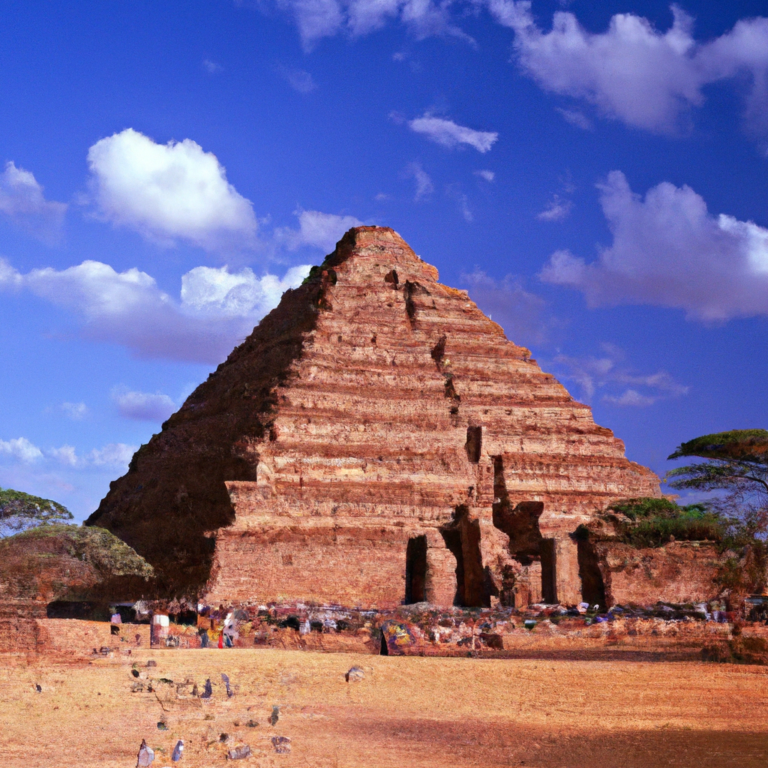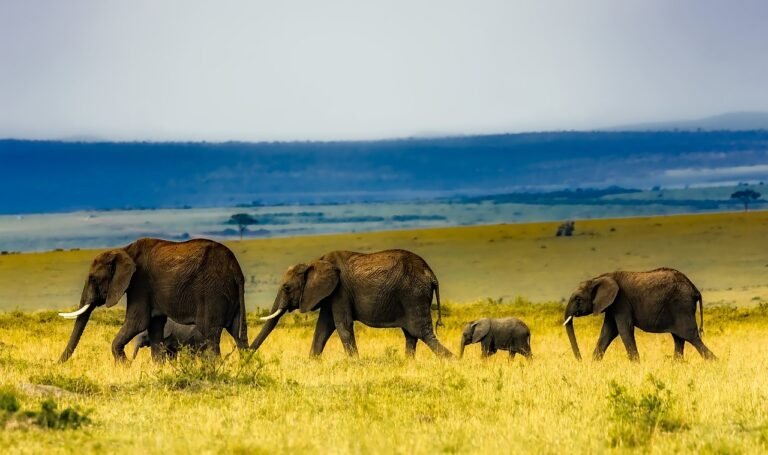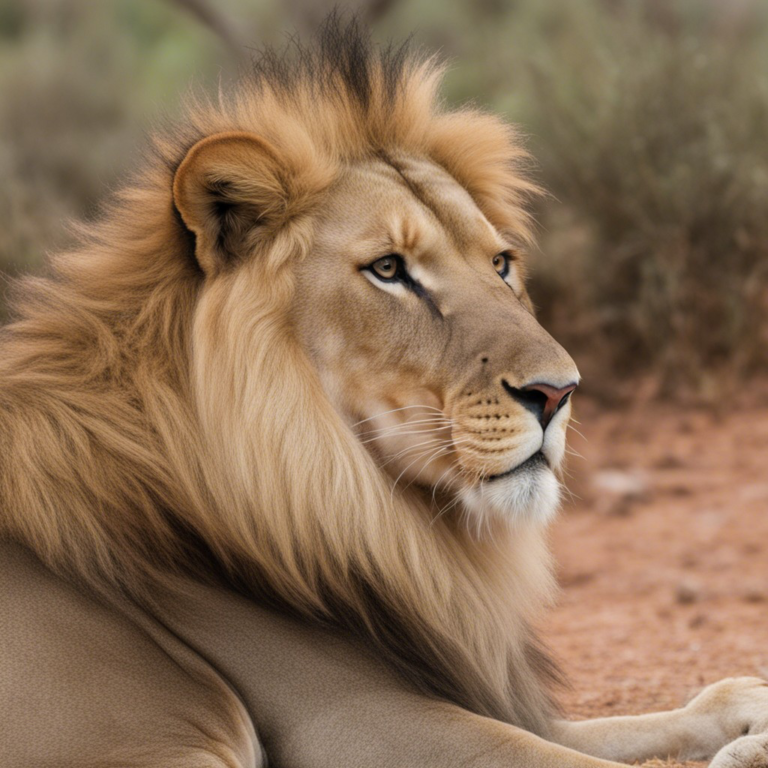Can You Visit Coffee And Tea Plantations In Kenya?
Have you ever wondered if it’s possible to visit coffee and tea plantations in Kenya? Well, the answer is a resounding yes! Kenya, renowned for its exceptional coffee and tea production, offers a unique opportunity for visitors to explore and learn about the fascinating world of these aromatic beverages. Through guided tours, you can witness the intricate process from plant to cup, immerse yourself in the lush surroundings of the plantations, and even indulge in a taste of the finest Kenyan brews. So, get ready to embark on an unforgettable journey through the captivating world of coffee and tea in Kenya.
Visiting Coffee Plantations
Location of Coffee Plantations
Kenya is a renowned producer of high-quality coffee, and visiting coffee plantations is a must-do activity for any coffee lover. Coffee plantations are mainly located in the central and eastern regions of the country, with notable areas including Nyeri, Murang’a, Kiambu, and Thika. These regions offer ideal climatic conditions for growing coffee, including rich volcanic soils, moderate temperatures, and ample rainfall.
Guided Tours
When visiting coffee plantations in Kenya, guided tours are highly recommended. These tours provide a unique opportunity to learn about the coffee production process, from the cultivation of coffee trees to the processing and roasting of the beans. Knowledgeable guides will take you through the plantation, explaining the different varieties of coffee grown, as well as the techniques used in harvesting and drying the coffee cherries.
Coffee Tasting and Education
Coffee tasting sessions are a highlight of visiting coffee plantations in Kenya. During these sessions, you’ll have the chance to sample various coffee flavors and learn about the tasting notes and characteristics of different coffee varieties. Experienced baristas and coffee experts will guide you through the tasting process, helping you develop a deeper appreciation for the complexities of coffee flavors. Additionally, you’ll gain insights into the art of brewing the perfect cup of coffee.
Accommodation Options
To fully immerse yourself in the coffee plantation experience, consider staying at one of the many charming accommodations located near the plantations. Some options include boutique hotels, lodges, or guesthouses that offer stunning views of the coffee fields. The accommodations often provide a tranquil and serene setting, allowing you to unwind and enjoy the beauty of the surrounding landscape.
Visiting Tea Plantations
Location of Tea Plantations
Kenya is one of the world’s largest exporters of tea, and its tea plantations are primarily situated in the highlands of the Rift Valley and the Mount Kenya region. These areas benefit from the region’s cool temperatures, fertile soils, and optimal rainfall, making them perfect for tea cultivation. Notable tea-growing regions include Kericho, Nandi Hills, and Limuru.
Guided Tours
Like coffee plantations, tea plantations in Kenya also offer guided tours. These tours provide valuable insights into the tea production process, from the tender steps of tea planting to the careful plucking and processing of tea leaves. Knowledgeable guides will lead you through the lush green fields, sharing fascinating information about the different tea varieties grown and the unique techniques used in tea production.
Tea Processing and Tasting
A visit to a tea plantation in Kenya is incomplete without experiencing the tea processing and tasting sessions. During these sessions, you’ll witness the intricate tea processing techniques, from withering to rolling, oxidation, and drying. You’ll also have the opportunity to taste a variety of tea flavors, such as black, green, white, and herbal teas. Tea experts will provide guidance on the brewing methods and the subtleties of each tea’s flavor profile.
Accommodation Options
To fully immerse yourself in the tea plantation experience, consider staying at one of the tea estates that offer onsite accommodations. These estates often provide a unique opportunity to witness tea production up close while enjoying comfortable and picturesque surroundings. Many accommodations have stunning views of the tea fields and offer delightful tea-themed experiences, such as afternoon tea sessions and educational workshops on the art of tea.
Best Time to Visit
Climatic Considerations
When planning your visit to coffee and tea plantations in Kenya, it’s essential to consider the climatic conditions. Kenya experiences two rainy seasons, the long rains from March to May and the short rains from October to December. To avoid heavy rainfall, it’s recommended to plan your visit during the drier seasons, which are generally more pleasant for exploring the plantations.
Harvesting Seasons
The coffee and tea harvesting seasons also play a significant role in determining the best time to visit. Coffee harvesting in Kenya typically occurs between October and December, while tea harvesting takes place throughout the year. To witness the bustling activity of coffee and tea picking, it’s advisable to plan your visit during these harvest seasons. However, keep in mind that the precise timing may vary slightly depending on weather conditions and specific plantations.
How to Get There
Flights to Kenya
To reach coffee and tea plantations in Kenya, you’ll need to fly into one of the major international airports, such as Jomo Kenyatta International Airport in Nairobi or Moi International Airport in Mombasa. These airports receive regular flights from various international destinations, making it convenient for travelers to access the plantations.
Transportation within Kenya
Once you’ve arrived in Kenya, there are several transportation options to consider for reaching the coffee and tea plantations. You can choose to hire a private car with a driver, allowing you to have flexibility and convenience in exploring the different regions. Alternatively, public transportation options like buses and trains are available, but they may require more time and may not be as suitable for reaching remote plantation locations.
Entry Requirements
Visa
Before visiting coffee and tea plantations in Kenya, check the entry requirements for your home country. In most cases, travelers will need a valid visa to enter Kenya. Depending on your nationality, you may be eligible for a visa on arrival or need to apply for one in advance. It’s important to research and ensure you have the correct visa documentation to avoid any complications during your trip.
Passport
Alongside the visa requirements, ensure that your passport is valid for at least six months beyond your intended stay in Kenya. Carry a physical copy of your passport and keep it in a secure place when exploring the plantations. It’s also a good idea to have digital copies stored on your phone or in cloud storage as a backup.
Health and Safety
Vaccinations
Prior to visiting coffee and tea plantations in Kenya, it’s advisable to consult with a healthcare professional or travel clinic to understand the recommended vaccinations for your trip. Common vaccinations for Kenya include those for hepatitis A and B, typhoid, yellow fever, and routine vaccines such as measles, mumps, and rubella. Malaria is prevalent in certain areas, so it’s essential to take appropriate antimalarial medication and use mosquito repellents to prevent mosquito bites.
Safety Precautions
While Kenya is generally a safe destination for tourists, it’s important to take basic safety precautions. When visiting the plantations, be aware of your surroundings and avoid wandering off alone in remote areas. It’s always wise to travel with a reliable guide or in a group, especially if you’re unfamiliar with the region. Additionally, take precautions with your personal belongings and avoid showing off expensive items or carrying large amounts of cash.
Local Culture and Etiquette
Respecting Local Traditions
When visiting coffee and tea plantations, it’s crucial to respect the local culture and traditions. Kenyan society is diverse, with numerous ethnic groups, each with its unique customs. It’s advisable to familiarize yourself with the local customs and etiquette of the specific region you’ll be visiting. Greeting locals with a warm “Jambo” (hello) or “Asante” (thank you) goes a long way in showing respect and forging positive connections.
Appropriate Clothing
Dressing appropriately is another aspect of respecting the local culture. Kenya has a predominantly conservative society, and it’s important to dress modestly, especially when visiting rural areas and religious sites. Lightweight, breathable clothing is recommended due to the country’s warm climate, but it’s also advisable to carry a light jacket or sweater for cooler evenings in the highland areas. Additionally, comfortable footwear is essential for exploring the plantations and navigating various terrains.
Supporting Local Farmers
Fair Trade Organizations
To support local coffee and tea farmers, consider purchasing products from fair trade organizations. These organizations work to ensure that producers receive fair compensation for their labor and promote sustainable agricultural practices. By choosing fair trade products, you can make a positive impact on the livelihoods of local farmers and contribute to the preservation of the environment.
Buying Locally Produced Products
One of the best ways to support local farmers is by buying locally produced coffee and tea products. Many coffee and tea plantations have onsite shops where you can purchase freshly roasted coffee beans, loose-leaf teas, or pre-packaged products. By buying directly from the plantations, you can be confident in the quality and authenticity of the products, while also supporting the local economy.
Other Sights and Activities
National Parks and Wildlife
While visiting coffee and tea plantations, take the opportunity to explore Kenya’s renowned national parks and wildlife reserves. Venture into iconic destinations such as Maasai Mara, Amboseli National Park, or Tsavo National Park, where you can witness incredible wildlife and witness the annual wildebeest migration. Game drives, walking safaris, and hot air balloon rides are just a few of the thrilling activities that await you in the Kenyan wilderness.
Cultural Experiences
In addition to its natural wonders, Kenya is rich in cultural heritage. Explore the vibrant cities of Nairobi and Mombasa, where you can immerse yourself in the local arts scene, visit museums and historical sites, or indulge in traditional cuisine. Additionally, consider engaging with local communities through cultural homestays or visiting Maasai villages to gain insights into their traditions and way of life.
Conclusion
Visiting coffee and tea plantations in Kenya offers a unique and enriching experience for travelers. From exploring the lush fields to learning about the intricate processes involved in coffee and tea production, there is much to discover and appreciate. By following the recommended guidelines, respecting local culture, and supporting local farmers, you can make the most of your visit while making a positive impact on the communities you encounter. So pack your bags, prepare your taste buds, and embark on a journey to savor the flavors and immerse yourself in the fascinating world of coffee and tea in Kenya.






